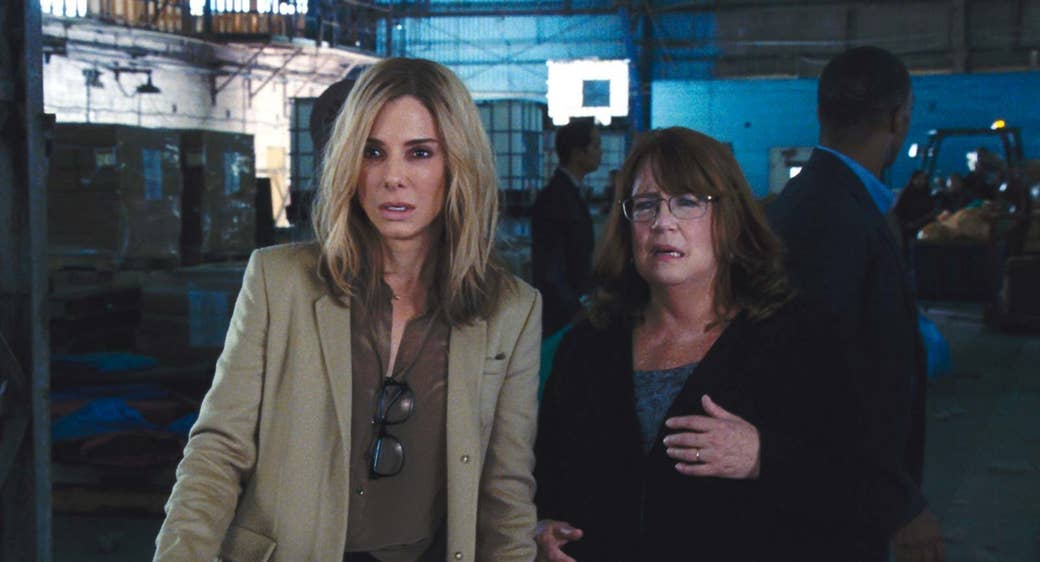
The first question from the audience after the world premiere of Our Brand Is Crisis at the Toronto International Film Festival last month was about hair.
Sandra Bullock's character in the movie, Jane Bodine, is a political consultant with a checkered past that's earned her the nickname "Calamity Jane." She has the blondish locks with long dark roots of a woman who was convinced to go lighter by some enterprising hairstylist months ago, then never bothered to go back because she's been living in near isolation for years and it doesn't matter. It's a look familiar to anyone who colors their hair on a less rigorous schedule than the salon-suggested four to six weeks, but it confounded an audience member who wanted to know why the character would look like that when she seemed, as he put it, to have the money to take care of herself. "It’s called root grow-out," Bullock answered with an impressive lack of overt scorn. "All the women in this room know what that means."
Bullock is one of the biggest stars on the planet, and in Our Brand Is Crisis, she plays a talented, amoral professional hired to run a Bolivian presidential campaign, and the first thing someone asked her about the movie is why her hair wasn't prettier. You couldn't have scripted a neater encapsulation of how women get evaluated for how aesthetically pleasing they are before anything else, especially with producer George Clooney standing right next to her. If Clooney had played the role in which Bullock ended up, as was initially planned, would it have occurred to anyone to ask him why his hair was gray or why he sported some scruff?
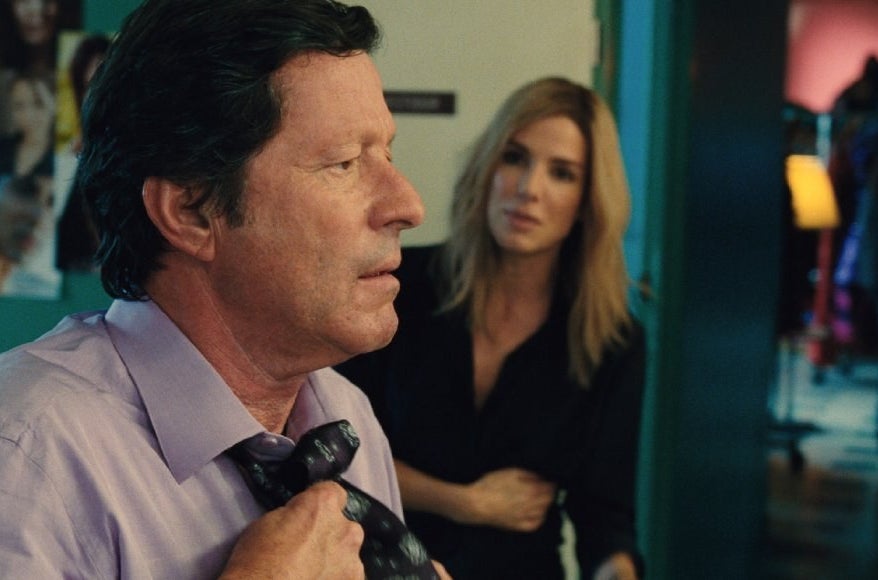
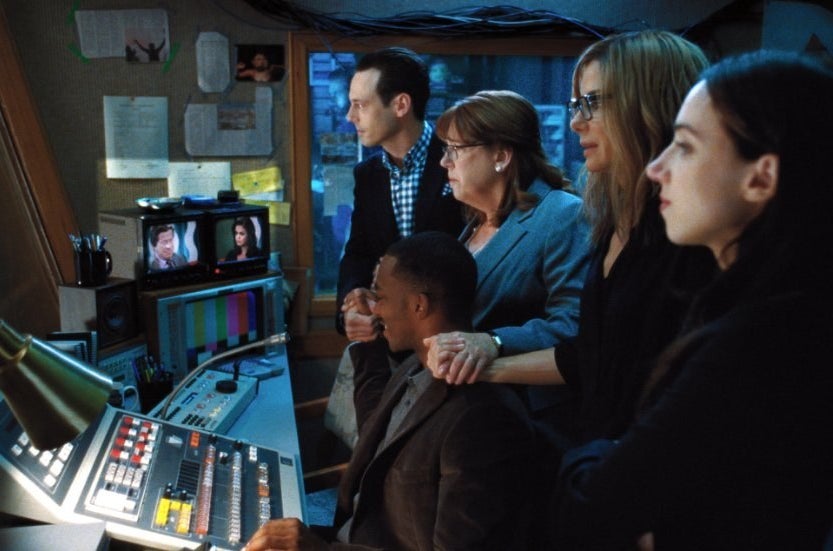
No, he probably would have been asked about the movie, though Our Brand Is Crisis — inspired by Rachel Boynton's documentary of the same name about James Carville's work in Bolivia 2002, and directed by the unpredictable David Gordon Green (All the Real Girls, Pineapple Express) — is undeniably more interesting for having Bullock as its lead. We're used to male antiheroes, often accompanied by women as the nagging moral centers, but Bullock's character is a gleeful participant in the fucked-up industry of exporting the most manipulative of American campaigning abroad (that is, until Our Brand Is Crisis's terrible failure of nerve). She unsettles an otherwise familiar story about someone who's really good at their terrible job, and without the need for someone to stand around wagging their finger at what she's doing.
Bullock's role in Our Brand Is Crisis is one of a few this year originally conceived of as male, then switched — like Britt Robertson's Casey Newton in Tomorrowland and Jada Pinkett Smith's Rome in Magic Mike XXL. This isn't a new idea, but three over the course of six months suggests a short-term fix for Hollywood's continuing, compulsive consigning of women to supporting, decorative, and reactive roles — why not reclaim some of the ones people seem to have no trouble writing for men? It's not without challenges — there's a well-intentioned weirdness to the way that no one in Tomorrowland seems to notice that Casey is a beautiful teenage girl, or that she's running around with a middle-aged curmudgeon played by George Clooney — but Our Brand Is Crisis, like Magic Mike XXL, tweaks its gender-flipping in a provocative way, suggesting that until there are more projects actually created with interesting female characters, this is a start.
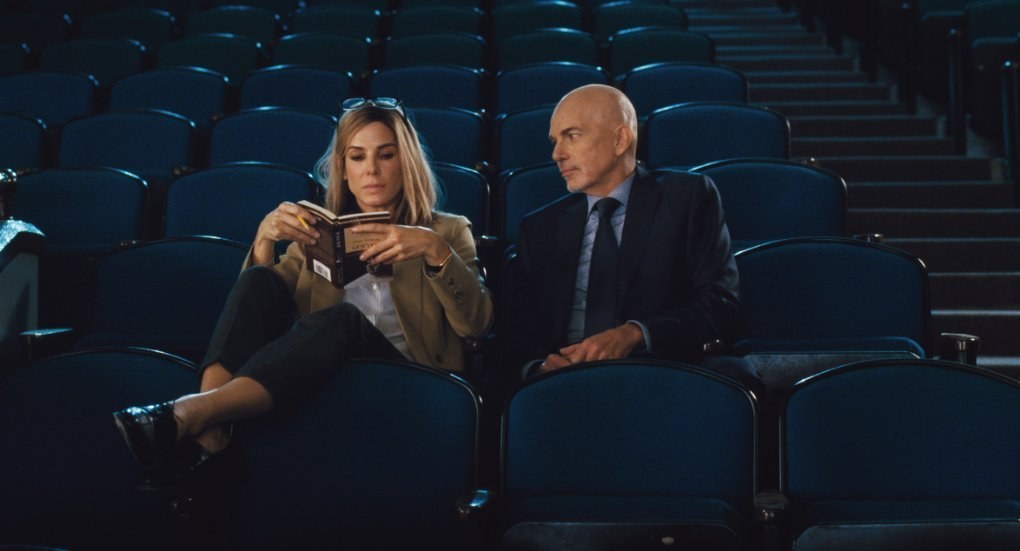
And Our Brand Is Crisis gets a capriciousness from placing Bullock in a role that doesn't follow the usual beats — as Jane, she staggers through the first part of the film poleaxed by altitude sickness, toting an oxygen tank and vomiting sporadically. She hates being touched and had some real problems with alcohol. She's permanently clad in a camel overcoat that looks a bit like a bathrobe. Like Rachel in Unreal, Jane is in a toxic relationship with her work, which gives her a rush like nothing else does. She doesn't care about how whether Pedro Gallo (Joaquim de Almeida) is actually the best candidate to run Bolivia (he's not); she cares about winning, and her team (played by Scoot McNairy, Anthony Mackie, Ann Dowd, and Zoe Kazan) goes from looking at her askance to looking at her in alarmed admiration.
Jane is a mess of a sort who couldn't and shouldn't be solved by a romance, and, fittingly, the closest thing she has to a love interest is a flirty but genuinely adversarial relationship with her old rival Pat Candy (Billy Bob Thornton), who's running the opposition's campaign. The two savor their attempts to destroy one another ("So what are you doing here? I thought you retired or gave up or something," Pat says in greeting), and Bullock and Thornton are delightfully sparky together. But there's never any thought that Jane and Pat would be suited for anything more long-term than some spontaneous hate sex. No one's going to save Jane but Jane.

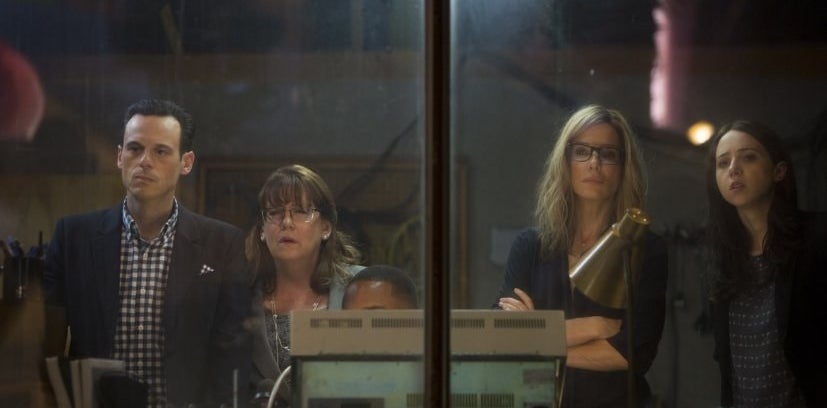
The whole middle section of Our Brand Is Crisis is a springy satire about Americans playing puppet master in Bolivia while behaving like they're at summer camp; there's a sequence in which Jane's and Pat's teams race in buses down a rickety mountain road, risking their lives for no reason other than to prove who's faster. The country's future is turned into a particularly mean color war, except in the end, the foreigners will go home, and the locals, embodied by naive intern Eduardo (Reynaldo Pacheco), will have to live with the fallout.
It's not the fact that the movie has a conscience that's its downfall, it's that Jane grows one herself, and Our Brand Is Crisis becomes a story of American guilt rather than American awfulness, perversely shifting the focus away from Bolivia to the would-be saviors in the process. It's an ending that's so crushingly bad that it feels like it lets down Jane as well as the audience — Jane, who isn't saddled with having to be the moral authority of anything until that point. Our Brand Is Crisis is the kind of movie that offers a look at a great antiheroine, but doesn't trust that she doesn't need to be tamed.
